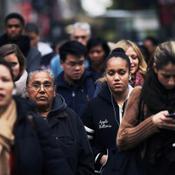 White families with children are more likely to choose racially homogeneous neighborhoods and schools, according to a study published in The Russell Sage Foundation Journal of the Social Sciences.
White families with children are more likely to choose racially homogeneous neighborhoods and schools, according to a study published in The Russell Sage Foundation Journal of the Social Sciences.
Neighborhood segregation has generally declined since the 1970s, but the decline among white families has been slower. The study suggests this can undermine racial equality by altering the development of white children’s attitudes toward diversity. These attitudes can have far-reaching consequences for children’s future educational and employment pursuits.
Segregation Among White Families
The study measured school-age children’s exposure to diverse racial groups in their neighborhoods between 2000 and 2010. Ann Owens—the study’s author and an assistant professor at the University of Southern California—then compared this exposure to adults’ exposure.
Owens found children experience more racial segregation than adults, and white children live in slightly whiter neighborhoods than white adults. This may be due to white families’ tendency to live in more segregated neighborhoods than single white adults and white adults without children.
The analysis further suggests school boundaries play a key role in this segregation, with white families choosing—whether consciously or not—to live in more segregated school districts. Owens theorizes that white parents might base quality of a school system on its racial composition, as many believe schools with less diversity are more highly ranked.Research on Segregation and Unconscious Bias
Previous research supports the notion that white people may prefer segregated neighborhoods. Given the choice between an all-white neighborhood, a neighborhood that is 40% black and 60% white, or an all-black neighborhood, a 2009 study found white people preferred the all-white neighborhood.
Other research suggests racial perceptions are generally distorted, supporting the notion that segregation can affect attitudes. Data from 2013 suggest people overestimate the racial diversity of the United States. Survey participants thought ethnic minorities comprised 49% of the country. The correct figure is 37%.
White people also overestimate the percentage of crimes committed by black people, according to two surveys conducted in 2005 and 2010. For example, white respondents believed black people committed about half of all violent crimes. The accurate figure was around 20%.
These perceptions may help explain an unconscious bias toward white neighborhoods.
References:
- Badger, E. (2014, April 18). Americans vastly overestimate how diverse the country really is. Retrieved from http://www.citylab.com/politics/2013/10/americans-vastly-overestimate-how-diverse-country-really/7320/
- Krysan, M., Couper, M. P., Farley, R., & Forman, T. (2009). Does race matter in neighborhood preferences? Results from a video experiment. American Journal of Sociology, 115(2), 527-559. doi:10.1086/599248
- Owens, A. (2017). Racial residential segregation of school-age children and adults: The role of schooling as a segregating force. The Russell Sage Foundation Journal of the Social Sciences, 3(2).
- Ross, M. (2017, March 23). Study finds that white families live in less diverse areas. Retrieved from http://dailytrojan.com/2017/03/22/study-finds-white-families-live-less-diverse-areas/
- Swanson, A. (2014, December 1). Whites greatly overestimate the share of crimes committed by black people. Retrieved from https://www.washingtonpost.com/news/wonk/wp/2014/12/01/whites-greatly-overestimate-the-share-of-crimes-committed-by-black-people/?utm_term=.6c1a20e6d01f

The preceding article was solely written by the author named above. Any views and opinions expressed are not necessarily shared by GoodTherapy.org. Questions or concerns about the preceding article can be directed to the author or posted as a comment below.

 Insidious Oppression: 10 Common Racial Microaggressions
Insidious Oppression: 10 Common Racial Microaggressions Status Power and Racism: How Recognition Can Lead to Change
Status Power and Racism: How Recognition Can Lead to Change Microaggressions: Everyday Racism in the 21st Century
Microaggressions: Everyday Racism in the 21st Century

